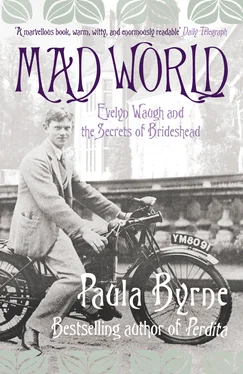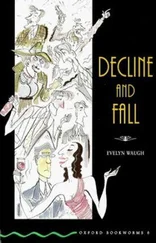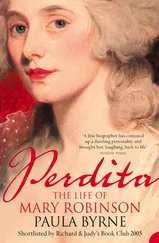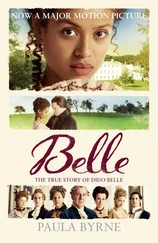Evelyn recorded a day’s outing to Snowdonia, which was a bore for all the masters, except for Young. He claimed that he had enjoyed the day enormously. ‘ Enjoyed yourself?’ asked Evelyn. ‘What did you find to enjoy?’
‘Knox minor,’ Young replied with what Evelyn called ‘radiant simplicity’. ‘I felt the games a little too boisterous, so I took Knox minor away behind some rocks. I removed his boot and stocking, opened my trousers, put his dear little foot there and experienced a most satisfying emission.’
In his autobiography, Evelyn tactfully referred to Dick Young under the pseudonym of ‘Grimes’. He describes him as ‘monotonously pederastic and talks only of the beauty of sleeping boys’. He himself had grown fond of the boys and was pleased that they had done well in their history examination.
For a short time during that summer term, his happiness increased. He handed in his notice in the ‘benign contemplation of a year abroad drinking chianti under olive trees’. But then news reached him that the job was not his after all. More bad news came with Harold Acton’s reaction to his novel, ‘The Temple at Thatch’. The verdict was negative: ‘Too English for my exotic taste. Too much nid-nodding over port.’ Evelyn promptly burnt the manuscript in the school boiler room and went down to the seaside. He took off his clothes and left them in a pile on the beach, accompanied by a suicide note consisting of a quotation from Euripides (in the original Greek, which he had taken the trouble to verify in a school textbook). Then he began swimming out to sea, intending to end it all. But he encountered a shoal of jellyfish, was stung on the shoulder and turned back.
The school year came to an end and Evelyn left Arnold House for London, with no job prospects and no money. He was at his lowest in these months. All his friends seemed to be developing their careers while his was going nowhere. There appeared to be no alternative but to seek another teaching post. Richard Plunket Greene told him about a vacancy at the school where he was teaching. Located at Aston Clinton near Aylesbury in Buckinghamshire, it was within striking distance of both London and Oxford. And Richard would be a colleague. He got the job.
Evelyn was determined to enjoy his summer before starting there in the autumn. Alastair Graham was back from Africa. They renewed their bond. At the end of August, Evelyn stayed with Alastair in Barford for a week. He heard Mass in a hideous church in Leamington Spa. He took a bus over to Stratford-upon-Avon, where Alastair was learning the art of hand-press book printing. They had cocktails at one hotel and luncheon at another, after which Evelyn went to the theatre and found the ‘audience most bardolatrous, laughing religiously at the most pathetic puns’. Afterwards, he met up with Alastair again. They had tea together, then returned to Barford ‘where we dined in high-necked jumpers and did much that could not have been done if Mrs Graham had been here’. She had left home in a rage on discovering that her son was guaranteeing Evelyn’s overdraft.
Several letters from Alastair survive from this time. ‘My dear Evelyn,’ one of them begins,
Thank you for your letter. Evelyn, it was very serious for a poor, careless, happy person like me. Of course I want you to treat me like your nature wishes to. I don’t understand how one could treat anyone otherwise without being insincere. Travail [?] is a charming spiced memory that I am most pleased to think of in my quiet moments. It is those memories that I live on.
Another one reads:
My dearest Evelyn, I feel very lonely now. But you have made me so happy. Please come back soon … My love to you, Evelyn; I want you back again so much.
Though ‘The Temple at Thatch’ had been consigned to the boiler of Arnold House, its opening chapter in the style of a film seems to have been recycled in a short story called ‘The Balance’, which Evelyn finished by the end of that summer of 1925. He thought sufficiently well of it to send it to Leonard Woolf at the Hogarth Press and Geoffrey Whitworth at Chatto & Windus.
The cinematic beginning has four unattributed voices. This kind of dialogue – like the telephone conversation – became one of Waugh’s literary trademarks. Each voice reveals the character of the speaker with precision and economy. In creating such voices, Evelyn was finding his own literary voice for the first time.
The main narrative is presented as a silent film whose captions are commented upon by a cinema audience that includes two housemaids and a Cambridge undergraduate. Evelyn drew upon much of his own experience for the hero, Adam Doure (the surname should presumably be pronounced to rhyme with ‘Waugh’). Physically, though, the character is created more in the image of Alastair than Evelyn.
Adam, like his creator, is a student at a London art school. He is still spiritually attached to Oxford, from where he has graduated and where his friends still reside. And he tries to commit suicide, leaving a self-dramatising note (albeit in Latin as opposed to Greek). His suicide attempt is thwarted when he vomits up the poison he has administered himself. Adam decides, on balance, that pursuit of his art is better than suicide.
There are other autobiographical details woven into the narrative: Evelyn’s sense of not belonging, his sadness, his unrequited love for Olivia (who becomes the excellently named Imogen Quest). Even his sale of his Oxford books is included. Adam’s library is ‘remarkable for a man of his age and means’, consisting of admirably bound volumes, some of them rare editions. Like Evelyn, Adam returns to Oxford in search of his friends and the happiness of his undergraduate existence. The Oxford scene is headed with the line from Quiller-Couch that Evelyn quoted so often: ‘KNOW YOU HER SECRET NONE CAN UTTER?’ The camera is imagined following Adam from the station through the city of dreaming spires to King Edward Street. Adam is visiting a special friend:
LORD BASINGSTOKE’S ROOMS. KING EDWARD STREET.
Interior of Lord Basingstoke’s rooms. On the chimney-piece are photographs of Lord Basingstoke’s mother and two of Lord Basingstoke’s friends, wearing that peculiarly inane and serene smile only found during the last year at Eton and then only in photographs. Some massive glass paperweights and cards of invitation.
On the walls are large coloured caricatures of Basil Hay drawn by himself at Eton, an early nineteenth-century engraving of Lord Basingstoke’s home; two unfinished drawings by Ernest Vaughan of the Rape of the Sabines and a wool picture of two dogs and a cat.
Lord Basingstoke, contrary to all expectation, is neither drinking, gaming, nor struggling with his riding boots; he is engaged on writing a Collections Paper for his tutor.
Lord Basingstoke’s paper in a pleasant, childish handwriting.
‘BRADLAUGH v. GOSSETT. THIS FAMOUS TEST CASE FINALLY ESTABLISHED THE DECISION THAT MARSHAL LAW IS UNKNOWN IN ENGLAND.’
He crosses out ‘marshal’ and puts ‘martial’; then sits biting his pen sadly.
‘Adam, how lovely; I had no idea you were in Oxford.’
They talk for a little while.
‘RICHARD, CAN YOU DINE WITH ME TO-NIGHT. YOU MUST. I’M HAVING A FAREWELL BLIND.’ Richard looks sadly at his Collections Paper and shakes his head.
‘My dear, I simply can’t. I’ve got to get this finished by tonight. I’m probably going to be sent down as it is.’
Adam returns to his taxi.
In this poignant little scene, Hugh Lygon enters the fictional world of Evelyn Waugh. His mother is a dominating spirit, as, by way of that nineteenth-century engraving, is Madresfield. Hugh’s passions are captured: drinking, gaming, riding. As is his academic weakness: the childish handwriting, the inability to spell ‘martial’. But hanging over the pen portrait are the qualities that Evelyn so loved. On the one hand, the capacity for friendship – the photographs of fellow Old Etonians, the invitations revealing that everyone wants his company. And on the other, the sense of sadness and hopelessness. In the flesh, Lord Basingstoke is Hugh Lygon. In the imagination, he is Sebastian Flyte in embryo.
Читать дальше












